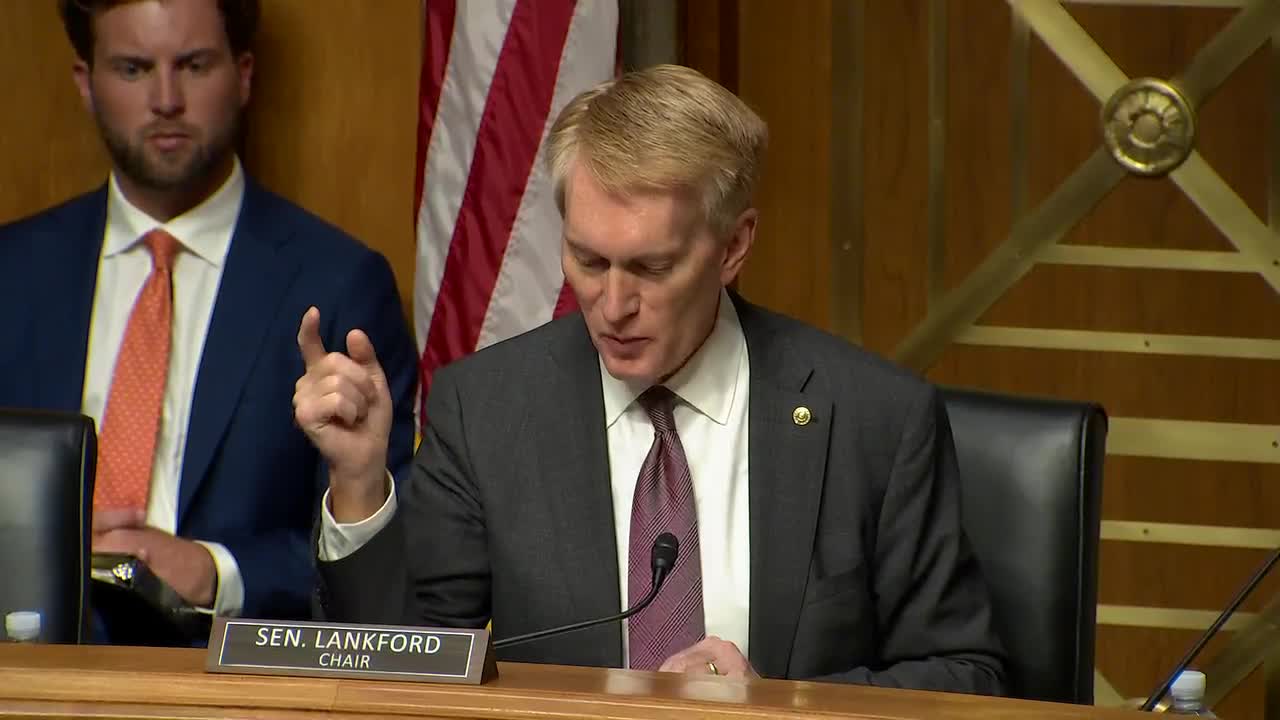Professor Switieri and Representative Schwartz Testify on Loper Breit Implications
July 30, 2025 | Homeland Security and Governmental Affairs: Senate Committee, Standing Committees - House & Senate, Congressional Hearings Compilation
This article was created by AI summarizing key points discussed. AI makes mistakes, so for full details and context, please refer to the video of the full meeting. Please report any errors so we can fix them. Report an error »

In a pivotal meeting held by the U.S. Senate Committee on Homeland Security and Governmental Affairs, experts gathered to discuss the implications of the Supreme Court's recent decision on Loper Bright and its impact on congressional responsibilities. The atmosphere was charged with anticipation as key figures in law and policy took their seats, ready to share insights on a topic that could reshape the regulatory landscape.
Professor Chad Switieri, an esteemed faculty member at the Catholic University of America, opened the session with a wealth of experience in law and public policy. His background includes serving as a special assistant to the U.S. Secretary of Labor and clerking for a federal judge, which lends him a unique perspective on the intersection of law and governance. He emphasized the importance of understanding the Loper Bright decision, which has significant implications for how Congress interacts with regulatory agencies.
Joining him was Professor Susan Dudley from George Washington University, a leading voice in regulatory studies. With a distinguished career that includes directing the Office of Information and Regulatory Affairs, Dudley brought a wealth of knowledge about the intricacies of regulatory processes. Her insights highlighted the need for Congress to adapt its approach in light of the Supreme Court's ruling, which could alter the balance of power between legislative and executive branches.
The discussion also featured Allison Schwartz, co-chair of the Bipartisan Policy Center's Health Housing Task Force. Schwartz, a former member of Congress, shared her experiences and the challenges of navigating regulatory frameworks. She underscored the necessity for bipartisan cooperation in addressing the complexities introduced by the Loper Bright decision, which could redefine how laws are enacted and enforced.
As the meeting progressed, the panelists delved into the specifics of the Bipartisan Policy Center's report on legislating after Loper. They explored potential strategies for Congress to maintain its authority while ensuring effective oversight of regulatory agencies. The conversation was marked by a sense of urgency, as the implications of the Supreme Court's ruling could resonate across various sectors, from healthcare to environmental policy.
In conclusion, the meeting served as a crucial platform for discussing the future of regulatory governance in the wake of Loper Bright. As experts shared their perspectives, it became clear that the path forward would require careful consideration and collaboration among lawmakers. The decisions made in the coming months could significantly shape the regulatory landscape, making this a critical moment for Congress and the agencies it oversees.
Professor Chad Switieri, an esteemed faculty member at the Catholic University of America, opened the session with a wealth of experience in law and public policy. His background includes serving as a special assistant to the U.S. Secretary of Labor and clerking for a federal judge, which lends him a unique perspective on the intersection of law and governance. He emphasized the importance of understanding the Loper Bright decision, which has significant implications for how Congress interacts with regulatory agencies.
Joining him was Professor Susan Dudley from George Washington University, a leading voice in regulatory studies. With a distinguished career that includes directing the Office of Information and Regulatory Affairs, Dudley brought a wealth of knowledge about the intricacies of regulatory processes. Her insights highlighted the need for Congress to adapt its approach in light of the Supreme Court's ruling, which could alter the balance of power between legislative and executive branches.
The discussion also featured Allison Schwartz, co-chair of the Bipartisan Policy Center's Health Housing Task Force. Schwartz, a former member of Congress, shared her experiences and the challenges of navigating regulatory frameworks. She underscored the necessity for bipartisan cooperation in addressing the complexities introduced by the Loper Bright decision, which could redefine how laws are enacted and enforced.
As the meeting progressed, the panelists delved into the specifics of the Bipartisan Policy Center's report on legislating after Loper. They explored potential strategies for Congress to maintain its authority while ensuring effective oversight of regulatory agencies. The conversation was marked by a sense of urgency, as the implications of the Supreme Court's ruling could resonate across various sectors, from healthcare to environmental policy.
In conclusion, the meeting served as a crucial platform for discussing the future of regulatory governance in the wake of Loper Bright. As experts shared their perspectives, it became clear that the path forward would require careful consideration and collaboration among lawmakers. The decisions made in the coming months could significantly shape the regulatory landscape, making this a critical moment for Congress and the agencies it oversees.
View full meeting
This article is based on a recent meeting—watch the full video and explore the complete transcript for deeper insights into the discussion.
View full meeting